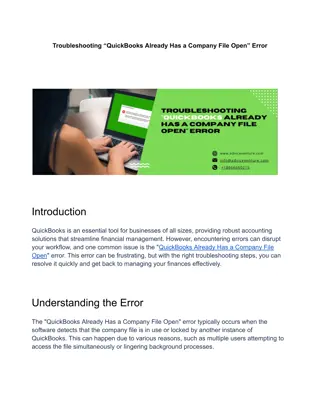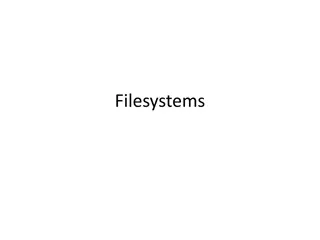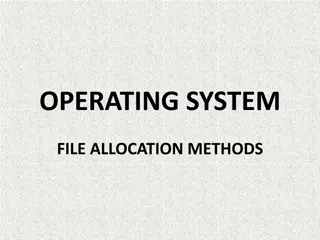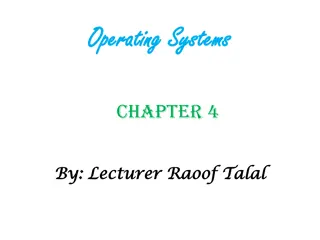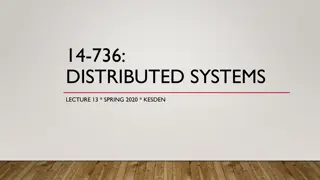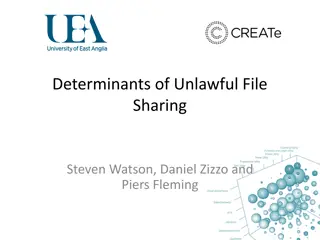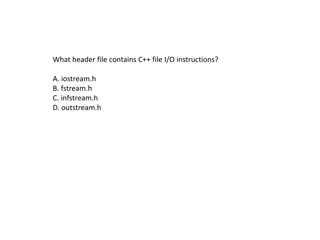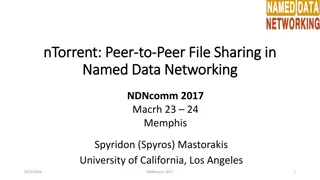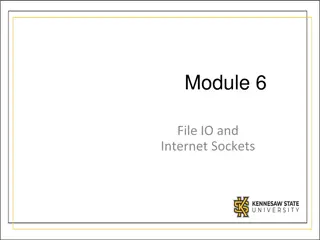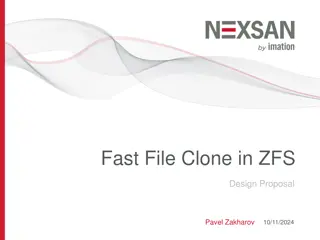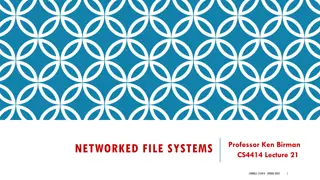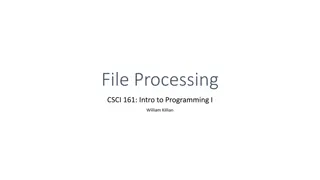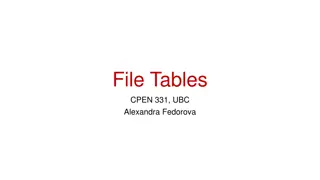FILE handeling
File handling in C programming involves managing files for storing and retrieving data. Learn about different file types, file structure, file operations like fopen and fclose, modes of file opening, reading and writing files, and more.
Download Presentation

Please find below an Image/Link to download the presentation.
The content on the website is provided AS IS for your information and personal use only. It may not be sold, licensed, or shared on other websites without obtaining consent from the author.If you encounter any issues during the download, it is possible that the publisher has removed the file from their server.
You are allowed to download the files provided on this website for personal or commercial use, subject to the condition that they are used lawfully. All files are the property of their respective owners.
The content on the website is provided AS IS for your information and personal use only. It may not be sold, licensed, or shared on other websites without obtaining consent from the author.
E N D
Presentation Transcript
File The file is a permanent storage medium in which we can store the data permanently.
Types of file can be handled sequential file random access file binary file
File structure C uses a structure called FILE (defined in stdio.h) to store the attributes of a file File-pointer: Is a pointer variable which can be store the address of a special file. Declaration of a file pointer:- FILE * file_pointer;
File structure The standard input is stdin The standard output is stdout The standard error is stderr
Steps in Processing a File 1. Create the stream via a pointer variable using the FILE structure: FILE *p; 2. Open the file, associating the stream name with the file name. 3. Read or write the data. 4. Close the file.
File Operation fopen fopen() () opening a file: Before performing any type of operation, a file must be opened for this fopen() function is used. syntax: file-pointer=fopen( FILE NAME , Mode of open ); example: FILE *fp=fopen( ar.c , r ); If fopen() unable to open a file than it will return NULL to the file pointer.
More On fopen from Figure 7-3 in Forouzan & Gilberg, p. 399
Modes of open
More on File Open Modes from Figure 7-4 in Forouzan & Gilberg, p. 401
File Operation fclose fclose() We need to close the file before ending the program or beginning another mode with that same file. To close a file, we use fclose function Syntax: fclose(file-pointer);
File Operation Reading and Writing a Char Reading and Writing a Char fgetc() is used for reading a character from the file Syntax: character_variable= fgetc(file_pointer); Example: fgetc(stdin) == getchar() fputc() is used to writing a character to a file Syntax: fputc(character , file_pointer); Eaxmple: fputc('a', stdout) == putchar( a )
File Operation Reading and Writing a string Reading and Writing a string fscanf() is used for reading a character from the file Syntax: fscanf(file_pointer, format , value1, value2, ..., valueN); Example: fscanf(stdin, "%d%29s%lf", &account, name, &balance); fprintf() is used to writing a character to a file Syntax: fprintf(file_pointer, format , value1, value2, ..., valueN); Example: fprintf(stdout, "%d %s %.2f\n", account, name, balance);
Using feof to Check for the End-of-File Indicator The function returns a nonzero (true) value when the end-of-file indicator has been set; otherwise, the function returns zero. The end-of-file indicator is set for the standard input when the user enters the end-of- file key combination. File Operations: foef foef() Syntax: feof(file_pointer)
Reading and Write char from a Sequential-Access File #include <stdio.h> void main() { FILE *fp; /* Pointer to the file */ char c; /* Character variable to read the content of file */ /* Opening a file in r mode*/ fp= fopen ("C:\\myfiles\\newfile.txt", r"); /* loop to read each character in the file*/ while(!feof(fp)) { c = fgetc(fp); fputc(c, stdout); } fclose(fp); }
Reading from a Sequential- Access File
Writing to a File #include <stdio.h> void main() { FILE *fp; char c ; fp=fopen("C:\\myfiles\\newfile.txt", a"); do{ puts( Enter your name and age ); char name[120]; int age; scanf( %s %d ,name,&age); fprintf(fp, %s %d\n , name, age); puts( Enter 1 to continue and 0 to to stop c = getchar(); }while(c != 0 ); fclose(fp); }
File Operation rewind rewind() rewind() is used to move the file pointer to the beginning of the given file. Syntax: rewind (file_pointer);




